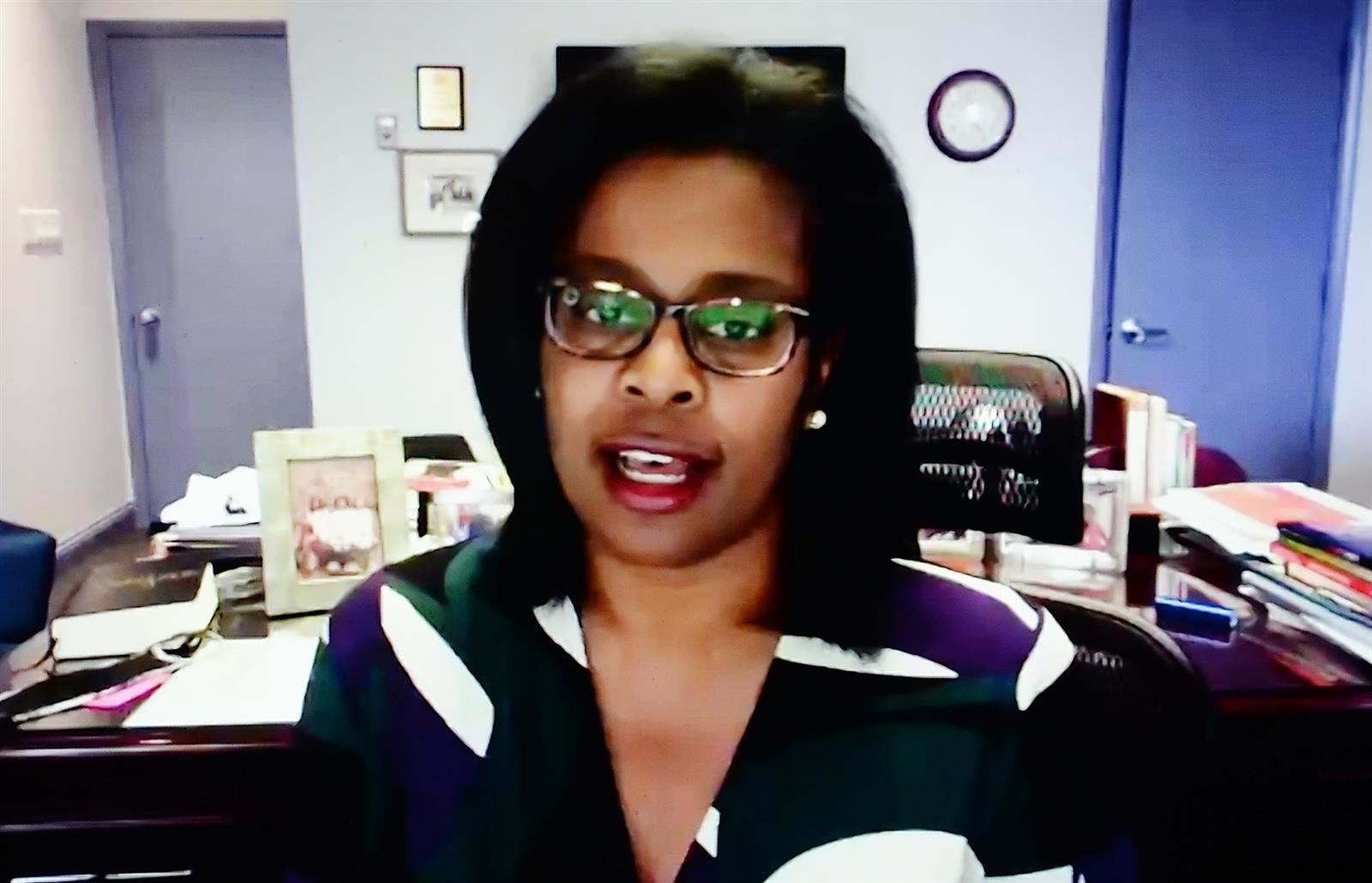- Council of the Great City Schools
- Pulitzer-Prize Columnist Thomas Friedman Participates in Panel Discussion on Education
Digital Urban Educator - November/December 2020
Page Navigation
- Council Releases Education Recommendations to the Incoming Biden Administration
- NYC and Boston School Districts Change School Admission Policies
- Student Leaders Say It’s Time to Rewrite History Lessons at Town Hall
- Laura Bush, and Julián Castro Address Council at Virtual Fall Conference
- Pulitzer-Prize Columnist Thomas Friedman Participates in Panel Discussion on Education
- Dallas Superintendent Recognized as Urban Superintendent of the Year
- Council Chair O’Neill: ‘Let’s Learn Better Together’
- Detroit and Buffalo Leaders Tenure Extended; Denver Superintendent Headed to Dallas
- Voters Decide on Education Ballot Issues
- Big-City Schools Named Among the Best Urban Schools in the Nation
- Two Urban Principals Honored Nationally
- 64th Annual Fall Conference Pictorial
Pulitzer-Prize Columnist Thomas Friedman Participates in Panel Discussion on Education
-
Thomas Friedman, author of the 2005 global best-seller The World Is Flat, called on educators to form “complex, adaptive coalitions” in their local communities to best serve students in what he called “a fast, fused, deep world … that is completely shortening the half-life of skills.”
In his remarks at the Council of the Great City Schools’ virtual 64th Annual Fall Conference, Friedman said massive, simultaneous accelerations in technology, climate change and globalization are not just changing but reshaping the world.
“What does this mean to K-12 education? Of course, people need the basics – reading, writing and arithmetic. But the dominant focus has to be about student agency,” Friedman said. “It has to be about inspiring, mentoring, fostering, nurturing and creating lifelong learners because the ability to be a lifelong learner is going to be the single most important competitive advantage you have in a world where you’re going to be expected to change jobs multiple times in your lifetime and to relearn and retool for each job.”
Friedman participated in a session called “The Future of Education,” alongside big-city superintendents. Moderating the session, Council executive director Michael Casserly suggested that pausing to consider “the nature of the future of education” was an important undertaking even as urban school leaders are consumed by the realities of the Covid-19 crisis of 2020.

Picking up on that point, Sonja Brookins Santelises, the CEO of Baltimore City Public Schools, asked Friedman, “If you were sitting where we’re sitting, what are the one or two leverage points to push in on now, even with everything else going on?”
Friedman first gave credit to the important role of public education for “the homogenizing power of public schools,” especially in the context of today’s political discord. “I’m a public-school snob,” he said.
With the pandemic raging, educators can play an important role explaining to students “what world they’re living in,” he said. The fallout from the forces now in play are so vast, he said, that the burden of educating and informing students – indeed, all citizens – “should not fall on you alone, but on every leader – every politician, every mayor, every governor” so that people can begin to understand the kinds of reforms and changes that may be necessary.
Friedman added that he tries to convey “one simple message” to parents and students: “That owning your own education, being inspired by the passion to learn – that is the only skill we can teach you.”
He urged conferees to focus on creating “self-motivated problem finders” even more than problem solvers because artificial intelligence is rapidly taking over that role.
Endorsing Friedman’s views, Eric Gordon, CEO of the Cleveland Metropolitan School District, said that an important lesson can be learned from the impact of the pandemic on public education.

“It is either a pause or a reset,” said Gordon. “There are those who want it to be a pause and go back to normal, and there are those of us, like me, that want a reset.”
“What we want for our kids in Cleveland is that they be presented with complex academic tasks … that result in authentic demonstrations of learning – and hopefully a joyful and adventurous learning ecosystem.”
Gordon asked Friedman how education leaders can “effectively influence the policy” to assure a rich learning experience for students “instead of returning to seat-time Carnegie units?”
Friedman didn’t sugar-coat his response, saying, “There’s only so much a single superintendent or a single principal can do.” While saying he generally avoids talking politics, Friedman acknowledged that there is “nothing like the bully pulpit of the presidency in terms of being able to reshape peoples’ minds and thinking.”
At the same time, Friedman said his travels have convinced him that “the towns that are thriving in America are those that have built their own complex, adaptive coalitions.”
Explaining, Friedman added: “They’ve basically said, ‘I can’t fix Washington right now, but if I can get my business community to partner with my education community to partner with my philanthropic community, to partner with my social entrepreneurial community to partner with my mayor and local government, I can create a complex adaptive coalition and we can kick ass here.”
The author and New York Times columnist offered his support to the educators’ efforts. “Bless your heart for what you’re doing,” he said. “You’re doing everything you can, and I understand what you’re up against.”
Media Contact:
Contact Name
Contact@email.com
(000) 000-0000
Contact Name
Contact@email.com
(000) 000-0000
Contact Name
Contact@email.com
(000) 000-0000
Media Contact:
Contact Name
Contact@email.com
(000) 000-0000
Contact Name
Contact@email.com
(000) 000-0000
Contact Name
Contact@email.com
(000) 000-0000


